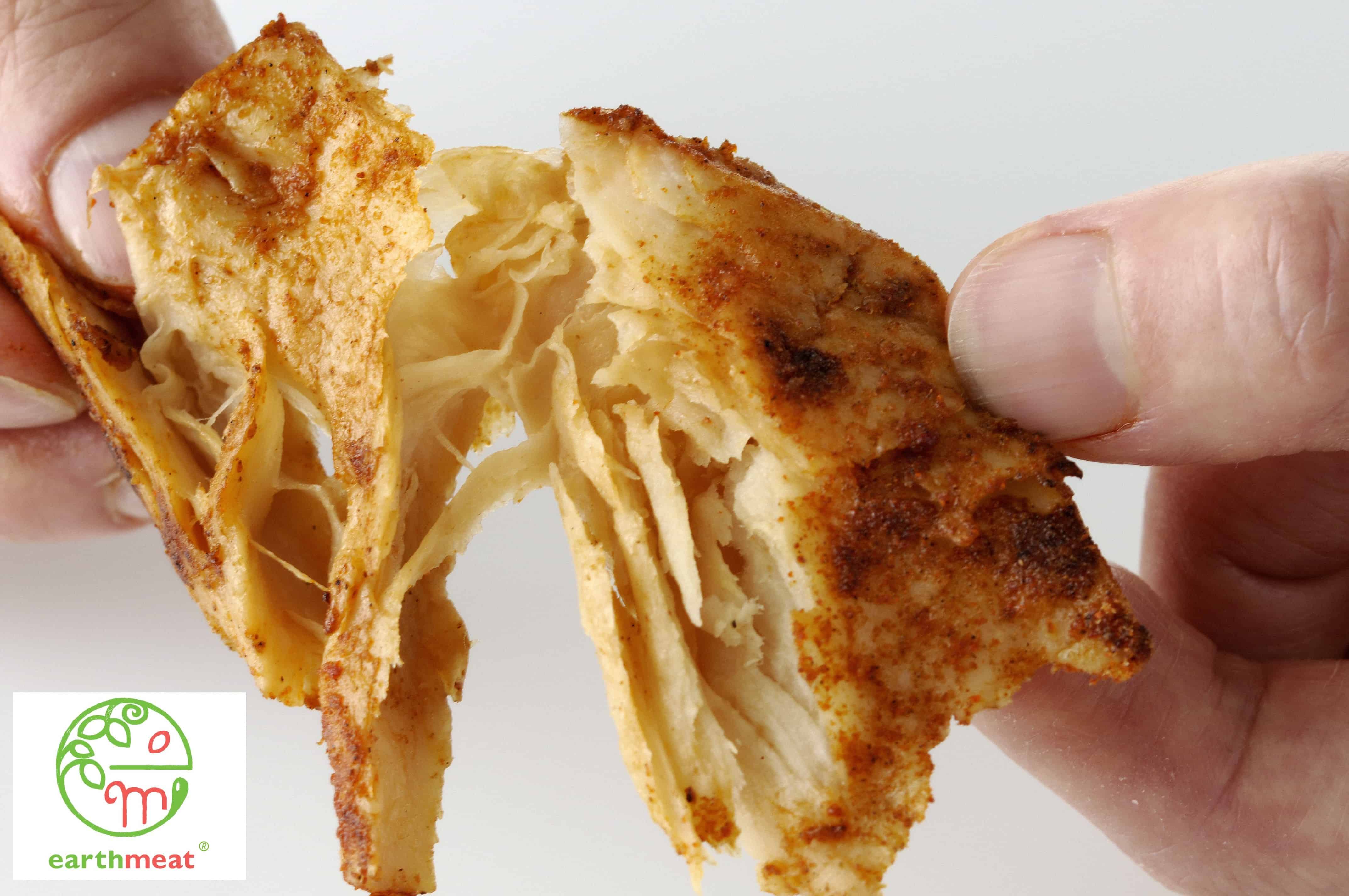- TOP
- Corporate Information
- Project Story
- Bringing Revolution to Japanese Food Culture With earthmeat
Catch New Food and Create New Business With It
Food cultures around the world are diverse and full of flavors. The mission of the Food Material Team (referred to below as the FDM Team) is to bring such rich and exciting new food cultures to as many consumers as possible. This team imports and sells food ingredients, such as stabilizers and release oils, as well as beverage cooling equipment. Its business is in good shape, but all members in the team believe that they should not be content with the status quo. If they continue to just sell products, they will eventually become involved in price competitions. The way to proceed is to see beyond changes that will occur in the future and create a new culture and value in food and beverages that would excite everyone with innovative conceptions and ideas. Therefore, the team believes that it is important to be always on the lookout around the world and catch information earlier than anyone else.
Bring the World’s Favorite Plant-based Foods to Japan
As FDM Team, we are working on a new theme, earthmeat, whose major ingredient is soybeans. In 2017, when team members gathered for a discussion on “food in 10 years,” a topic on plant-based food came up. That year, all of us in the team visited one of the world’s largest food trade shows in Europe, where we found many booths for companies which had launched plant-based foods and learned that those foods were already popular in countries other than Japan. We sampled them to find that they were so fibrous and juicy that we could not recognize that they were not meat unless we were told so. The one by a Dutch manufacturer was outstanding in particular.
The FDM Team had mainly focused on products for the confectionery, bakery, dairy, and beverage industries, but plant-based foods had a broad base. We could deliver products to different customer segments more than ever, including restaurants, hotels, ready-made meal manufacturers, and processed food manufacturers. All members of the team agreed that we could take a leap beyond our existing business domain by bringing this food to Japan.

Persistent Negotiations to Break Down Barriers to the Japanese Market
We immediately contacted the aforementioned manufacturer in the Netherlands. We proposed that we would like to do business with them as a distributor in Japan, but they flatly refused, telling us that they were not interested in the Asian market because they were focusing on Europe. We, nevertheless, did not give up, and instead continued to propose Harada Corporation’s vision, sales plan, and promotion methods, which enabled us to obtain their agreement.
However, the process from there became extremely difficult. We had to clear legal regulations to import those products into Japan. Upon the raw materials check, we found some ingredients approved in Europe but not in Japan. We asked the manufacturer to develop a recipe without that specific ingredient, but they replied that they could not change their recipe only for Japan. As a matter of course, it is a daunting task to take out even a single ingredient from the recipe. They would have to reorganize the production system again and would increase the burden for on-site staff. It is reasonable to think that they would not do business with a Japanese company that brought up annoying requests but rather deal with the European market as in the past.
However, we could not give up so easily. We again explained to them our vision, the attractiveness of the Japanese market and its scale, and emphasized that a new path would open by solving the issue on ingredients. After listening to our contestation, the manufacturer shared our extraordinary enthusiasm and agreed to change their recipe.
Participation in Trade Show – Then, the Good Reaction We Sensed
Now that we had the manufacturer’s agreement, we had to sell the product. Therefore, we decided to attend a large-scale food-related exhibition to promote the product. We thought that it would be necessary to put a brand name originating from Harada Corporation on the product as branding according to customers in the Japanese market. We told the manufacturer that we would like to sell the product under our brand name with the wish of Harada Corporation and obtained their approval for this, too. We established the concept together with all members of the team and devised a branding strategy.
Thus, we named the product earthmeat. We added a catchphrase of “friendly meat produced from the earth” so that we could convey an image that it was healthy as well as body- and earth-friendly.
We attended a trade show in April 2019. earthmeat’s appeal points are to have a real meaty, juicy texture in spite of being plant-based food, and to offer healthy and delicious cooking that is tender even when cold. In addition, plant-based food has a smaller environmental burden than animal-derived meat. With the former the efficient use of water and grain resources are expected, as well as the reduction effects on greenhouse gas emissions. We can contribute to the SDGs from various angles if we include this type of food in our daily diet even once a week. It is an option of new and revolutionary food that is socially and environmentally friendly.
The response from visitors to the booth was great. We received orders from restaurants and hotels. We also had an unexpected inquiry from a nursery school that wanted to use earthmeat in its school lunch. Some questions included, “I don’t know how to use it for cooking,” and “I don’t know how to appeal to end users.” However, we repeatedly explained in detail, showing the photos of dishes prepared by our trusted food coordinators and proposing their recipes. We exchanged business cards with approximately 600 companies at the trade show. We also became connected with companies we had never had contact with before. Thus, we had a great start and could sense a great reaction.
Deliver that Exciting Feeling to the Japanese Diet
Nonetheless, success in Japan depends on what we will do from now on.
Even the faces of those who are reluctant when told that the product is made from soybeans turn into a smile once they sample it, saying, “It’s delicious.” Then, a positive question arises: “What can I cook with it?” We are confident that earthmeat is a product that can make people smile and will impress them. As the next step, we plan to open an outlet to have contact with consumers. In the future, we aim to expand our business not only in Japan but also in Asia, and to have people say “earthmeat” when it comes to plant-based meat.
earthmeat is a food that will stay around as our lifestyle changes in the future. earthmeat is not only a new, healthy, and satisfying option for those who love meat, but can be tasted by those who do not eat meat including vegans and vegetarians, who are a worldwide trend, because it is not derived from animals. Furthermore, even if it becomes difficult for us to secure protein due to continued global population growth, earthmeat will color our dietary life as a variation of plant-based protein. earthmeat can accommodate the diversity of people and global environmental changes, which becomes significant in our efforts for this product.
PROJECT STORY
-

Quantify “Deliciousness” Created by Artisanship and Experience
The value of “deliciousness” varies by individual. There is an organization that aims to visualize such deliciousness, which could be regarded as ambiguous. That organization develops and verifies a hypothesis about the kind of deliciousness consumers want, then reproduces it in a system. Mondomix Japan is engaged in the development of an unprecedented system.




